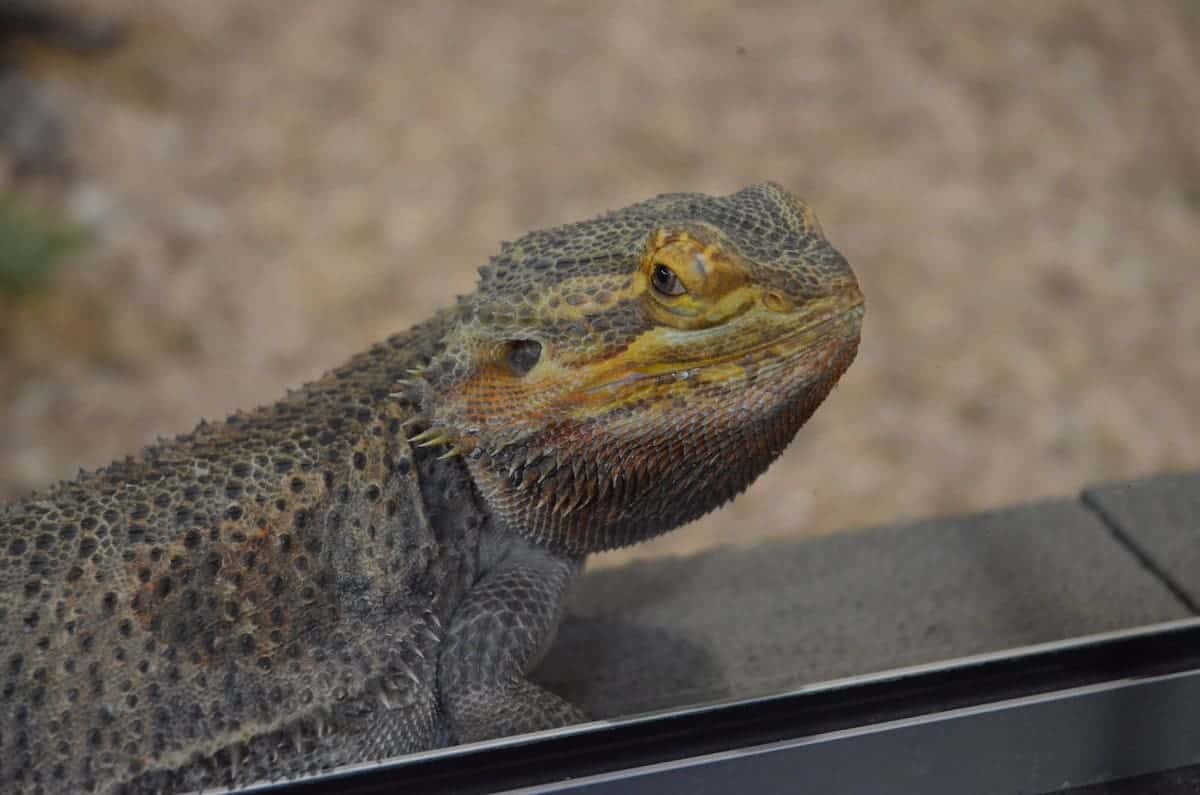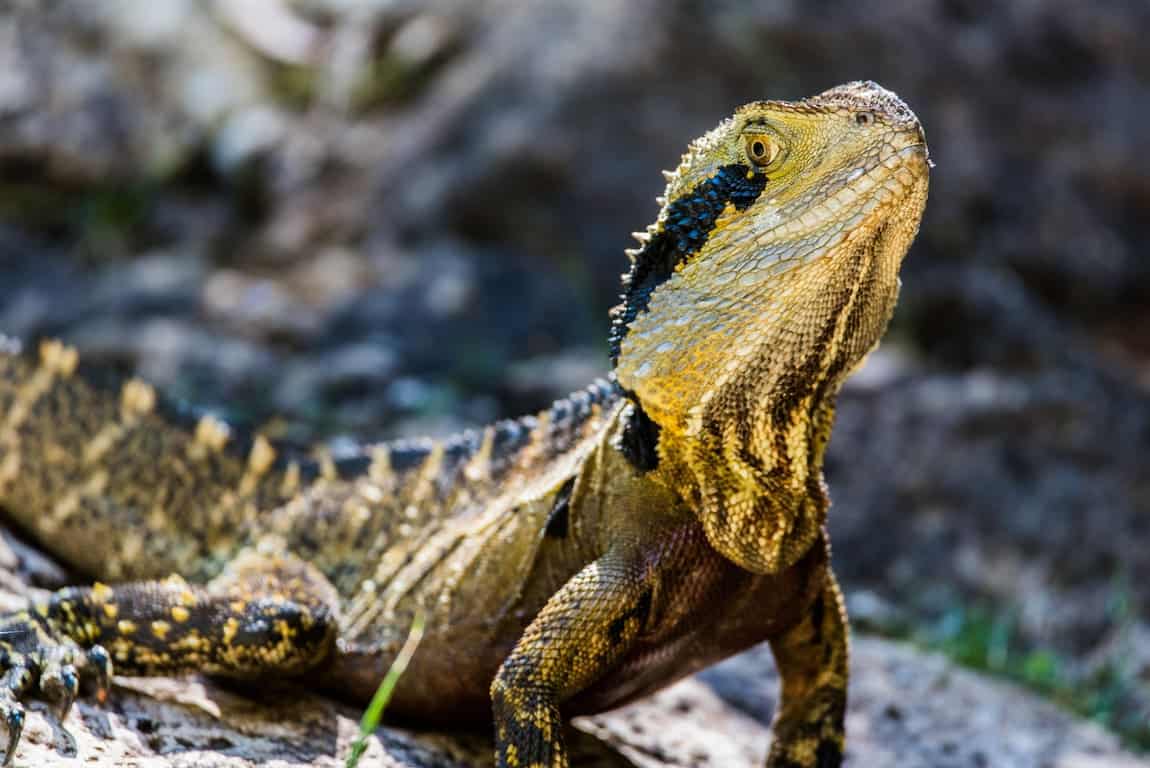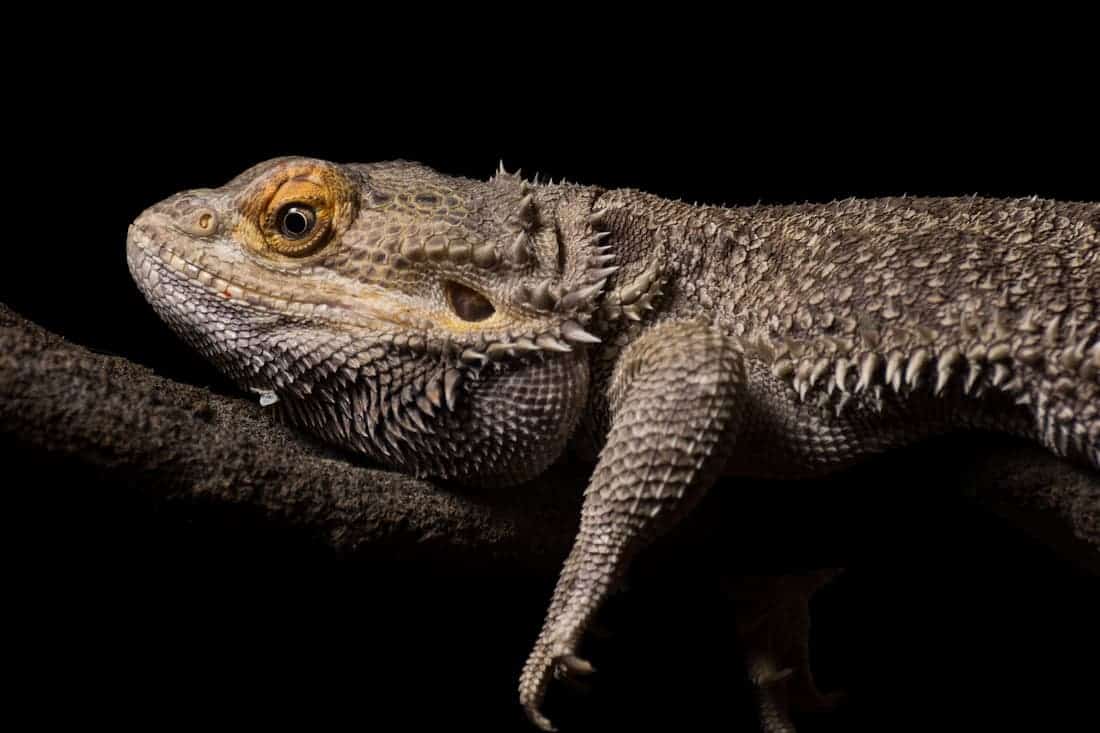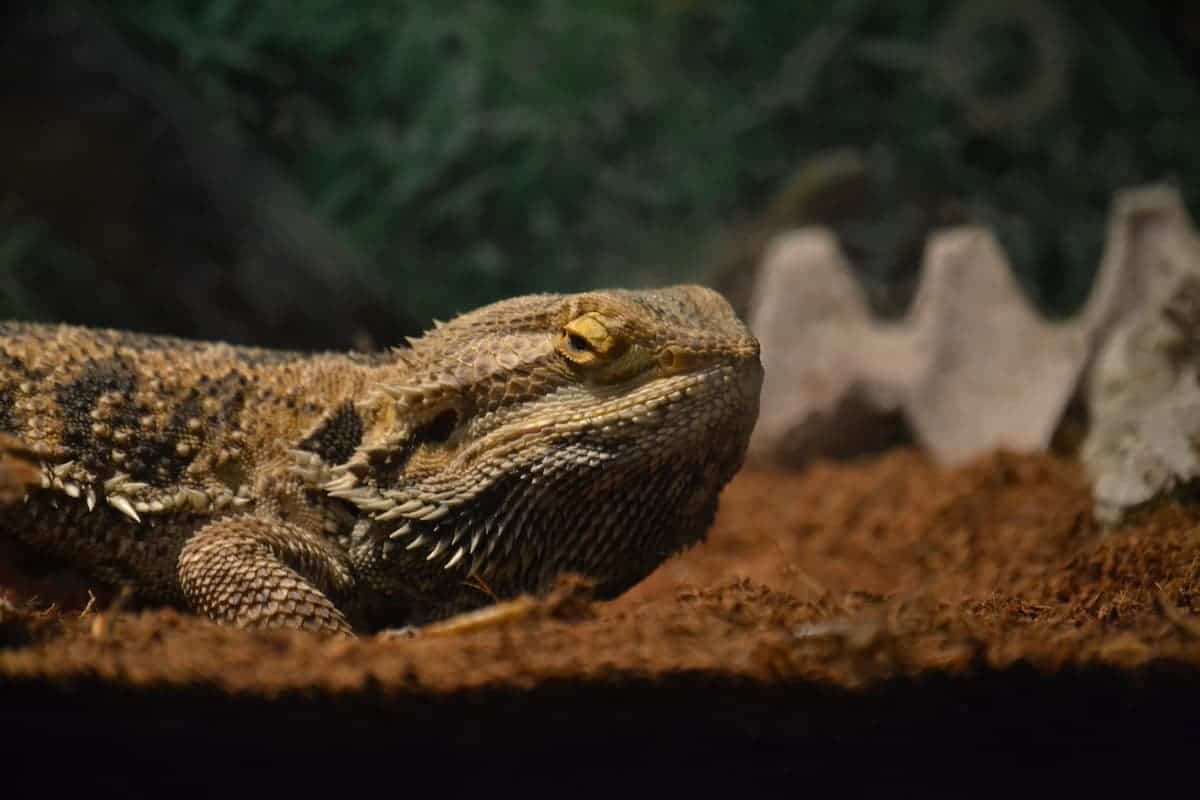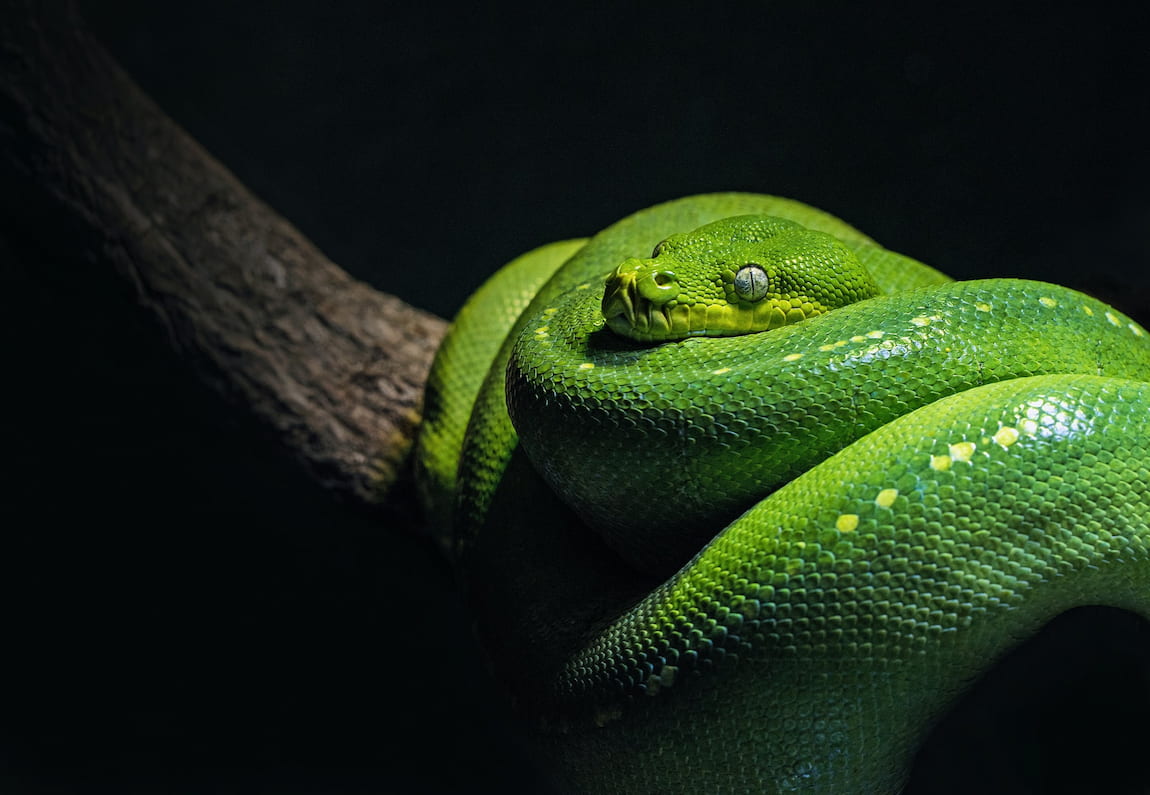Do you ever wonder why bearded dragons sleep standing up? It’s a behavior that can be puzzling for new and experienced bearded dragon owners alike. In this article, we’ll discuss the causes of this behavior, what it means for your bearded dragon’s health, and how you can help them get the best sleep possible.
Why Do Bearded Dragons Sleep Standing Up?
Whether they’re curled up on a branch, hanging from a plant, or resting on the floor of their tank, bearded dragons are an amazing and rarely seen sight. But what many people don’t know is that bearded dragons sometimes sleep standing up!
It might seem abnormal, but there are a few common explanations for this behavior. Like anyone else, sometimes they just feel more comfortable sleeping in that position, so they do it! Others suggest that they may sleep while standing up to help reduce stress levels. If there are new elements or other animals in their tank, stress levels might rise, resulting in this strange behavior.
Other times, their tank may just be too warm, so they’re trying to cool their belly down using the outside temperature through the glass. Regardless of the reason, there’s usually no need to be alarmed if your beardie is sleeping standing up —it’s usually just their normal preference, but if not, the problem is easy to fix!
They Just Like That Position
Many people think that bearded dragons sleep standing up because something is physically wrong with their pet, but in reality, these reptiles often sleep this way simply because they like it.
These animals are highly intelligent and fiercely independent —two things that often go hand in hand with a strong preference for certain positions when it comes to resting. Bearded dragons can be pretty lazy, and if they happen to doze off while upright, then it’s just another normal part of their day.
So if you’ve ever wondered why your bearded dragon seems so content to stand upright while snoozing, the answer is simple: they just prefer the position!
They Might Be Stressed Out
If you’ve ever had a pet bearded dragon, you might have noticed that they sometimes like to sleep standing up against the glass of their cage. This behavior is sometimes a sign of stress. If they find something in their environment uncomfortable or even threatening, they will often respond by attempting to climb the glass to get out of the cage.
After their tireless efforts to escape, they often just fall asleep in that position. Bearded dragons are naturally shy and anxious animals, and they can easily become stressed in an unfamiliar, crowded, or dirty environment.
If you notice your bearded dragon sleeping against the glass more frequently, it’s a good idea to provide them with more hiding places and try to minimize noise and activity around their cage. Take note of any recent changes to their environment, and make adjustments wherever necessary. By creating a calm and comfortable environment, you can help reduce your bearded dragon’s stress levels and encourage them to sleep peacefully.
They Might Be Too Hot
In some cases, bearded dragons will sleep standing up as a way to try to cool off. When the temperature inside their cage gets too hot, it becomes unbearable to rest where they normally would, so they make an attempt to either escape (like how we previously described), or to cool themselves off using the glass.
If you notice your bearded dragon doing this, it’s important to make sure that the temperature inside their cage is not too high. Otherwise, they may become overheated and stressed, which can lead to health problems.
The overall temperature inside your bearded dragon’s cage should range between 75-85 degrees Fahrenheit, and they should have a warmer spot for basking which reads no hotter than 105 degrees Fahrenheit. While bearded dragons are native to hot climates, if the ambient temperature inside their cage is too hot, it can become life-threatening.
Always make sure to check the temperature inside their cage regularly and make adjustments whenever necessary.
What Is Glass Surfing?
“Glass surfing,” is a term bearded dragon owners use when referring to their strange habit of climbing up the glass walls of their cage. They do this when they feel stressed, restless, bored, hot, or any other number of reasons.
You might see your bearded dragon glass surfing when they first wake up in the morning or right before they go to sleep at night. It’s a good idea to provide your bearded dragon with plenty of things to do during the day so that they don’t get bored and start glass surfing out of boredom —they might just escape!
How Do Bearded Dragons Usually Sleep?
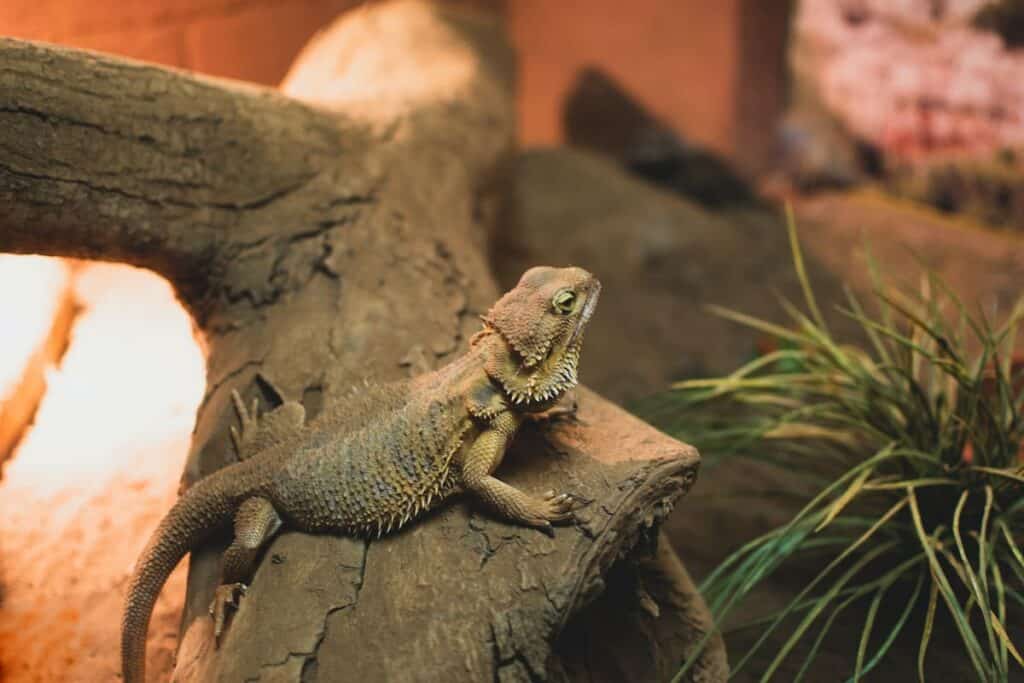
Now you know that it’s not totally uncommon for bearded dragons to sleep standing up, but how do they usually sleep? Usually, bearded dragons will sleep in their basking spot during the day. This is where they like to sun themselves and warm up their bodies.
At night, they will often sleep in their hideaway, which is a dark and cozy place where they feel safe and secure. This is why it can be alarming to find your bearded dragon sleeping against the glass and standing up. Bearded dragons typically sleep for up to 12 hours each day, and they usually do not wake up during the night. However, if they are disturbed or if there is a change in their environment, they may wake up and become active.
Provide a Comfortable Environment
The best way to ensure that your bearded dragon gets the best sleep possible is to provide them with a comfortable and safe environment. This means creating a habitat with the proper temperature, humidity, hiding places, and enrichment. By providing your bearded dragon with everything they need to feel safe and comfortable, you can help them get the sleep they need —whether standing up or not.
Conclusion
While it may seem strange, there are a number of reasons why your bearded dragon might sleep standing up. In most cases, it’s nothing to worry about and is simply a quirk of their behavior. However, if you notice your bearded dragon sleeping against the glass more frequently, it’s important to take note of any changes in their environment and make adjustments accordingly.
